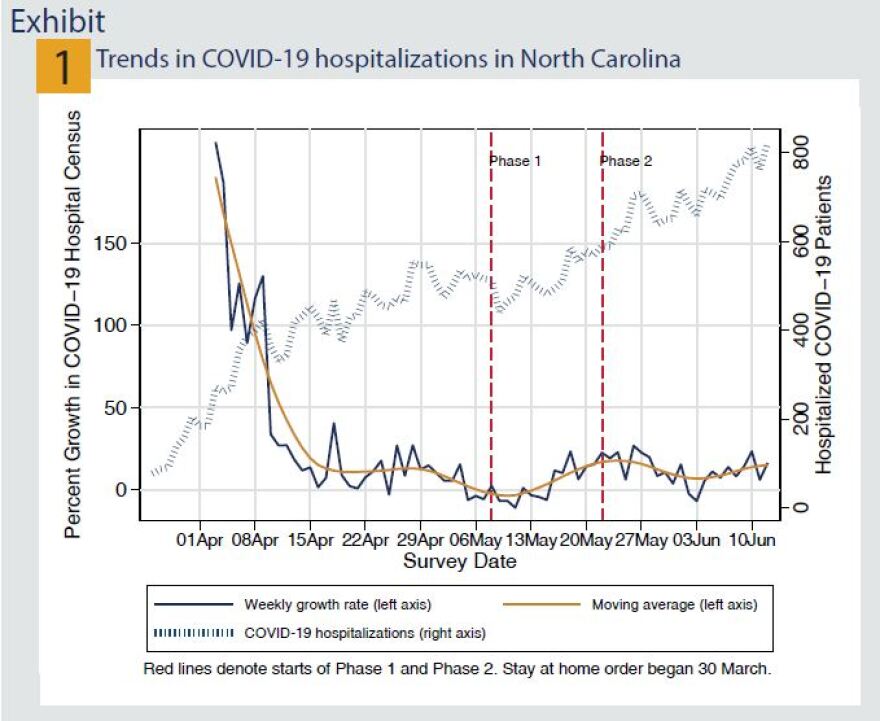As North Carolina sees more and more people hospitalized due to COVID-19, doctors at Triangle hospitals express concern, but also confidence that the state's health care systems are better positioned to handle an influx of patients than they were three months ago.
On Thursday, the N.C. Department of Health and Human Services reported 857 people hospitalized with COVID-19. It was the third straight day of setting a new daily high for that metric. While measuring hospitalizations is a lagging indicator — people infected with the coronavirus typically experience symptoms bad enough to need be hospitalized only after several days — some experts say it's one of the most accurate measures of the virus' impact because it's more definitively measured and captures the most serious cases.
Hospitals in some states, particularly in the northeast, saw earlier spikes of COVID-19 patients, but that did not happen here in North Carolina. That gave hospitals time to get ready for these patients.
"We are in a markedly different place now than we were in mid to late March," said Dr. Chris DeRienzo, WakeMed Health and Hospitals chief quality and medical staff officer.

The increase in hospitalizations has been slow but steady. When Gov. Roy Cooper pushed North Carolina into Phase 1 of reopening, the state's hospitals were seeing about 500 COVID-19 patients on a daily basis. This figure counts all patients on a given day, meaning a patient hospitalized for one week would be counted once each day.
When Cooper stepped the state into Phase 2, hospitals had about 600 patients per day, which has now increased to more than 800 per day.
"It certainly is concerning to see the slow rise in hospitalizations," said DeRienzo. "Thankfully a slow rise is not an exponential rise."
A recent report from the DHHS task force that is modeling the coronavirus pandemic found that all hospitals were seeing increases, but those around the Triangle, Greenville and Charlotte were seeing some of the fastest upticks.
Dr. Joseph Rogers, the Chief Medical Officer at Duke Health and an advanced heart failure specialist, said that because hospitals are better prepared, recent upward trends don't necessarily mean hospitals will reach capacity limits.
"Although these models are concerning, we can still bend this curve like we did the first time," he said.
Importantly, however, he noted the importance of taking steps to control the spread.
"Simple measures, like wearing a mask, are very effective at reducing the spread of viral illness," Rogers said.
He added that frequent hand washing and social distancing also play an important role in stopping the spread.
Rogers said the message today is that "it's not outside of our control to bend this curve again (but) we shouldn't forget what we learned in the last two months."








